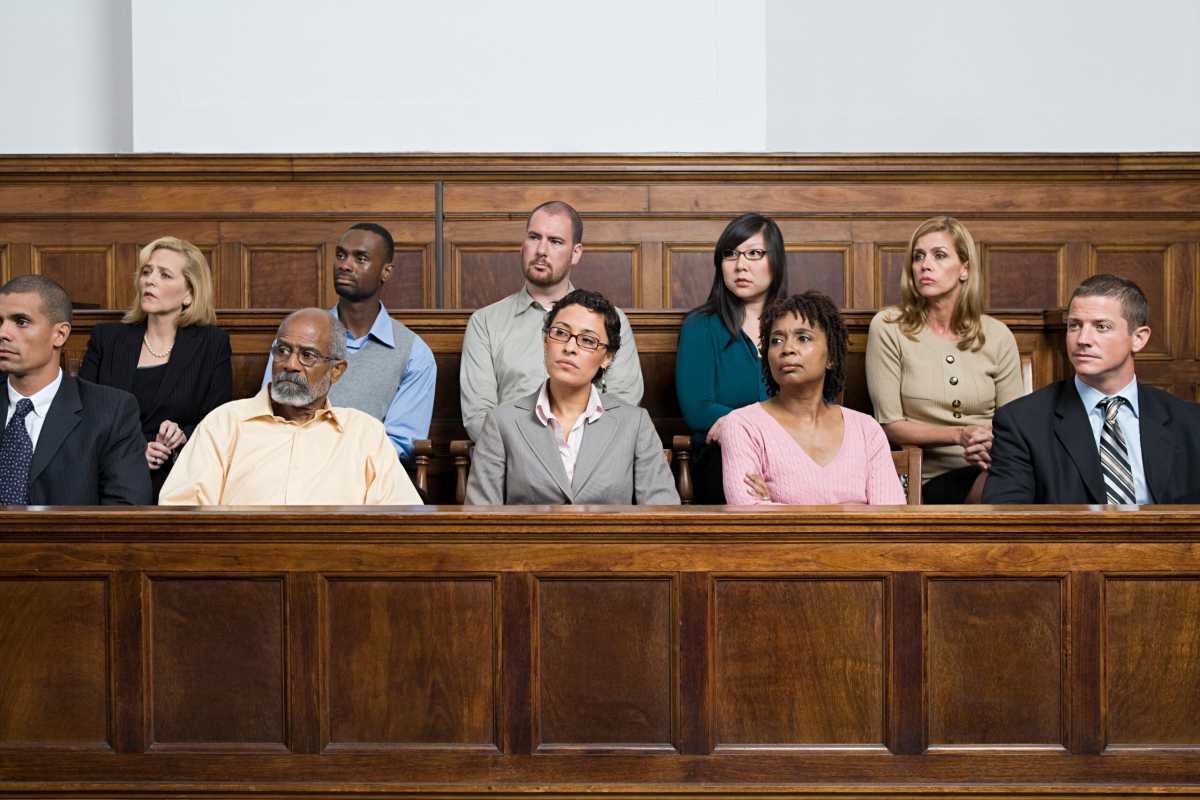In ancient Greece, the right of average citizens to sit in judgment of one another on juries of law was controversial, because no one trusted the average citizen. As playwright Aristophanes argued in “The Wasps,” regular people could pack jury boxes for a power-based ego boost or to execute malicious plots against their neighbors.
Today, the public jury system is considered one of the crown jewels of Western jurisprudence and American courts specifically.
But in Philadelphia, we have the reverse problem of that which Aristophanes imagined. No one seems to want to participate. In recent years, stats have shown that just 13 percent of Philadelphians actually participate in jury duty.
“Jury duty is our shared American tradition,” said Judge Barbara McDermott, chair of the Board of Judges’ Jury Committee. “We owe it to each other to perform this duty, as justice in Philadelphia depends on the quality of our jurors. When we serve as jurors, we are investing in our community.”
McDermott was speaking at an event held by city courts to unveil a new mural in Philadelphia City Hall that celebrates jury service and a new welcome film that will show jurors what the process is like.
“This mural and this video will serve as reminders of the importance of jury duty to all who enter this room,” said Jacqueline F. Allen, administrative judge of the Court of Common Pleas – Trial Division.
It seems to be a badly needed reminder. Out of 545,000 jury summons issued in 2015, only 14 percent actually showed up in court to serve as part of the juror pool. About half did not serve for legitimate reasons, but roughly 35 percent, about 175,000 people, didn’t even respond.
That’s a shame, said Democratic candidate for Philly DA Larry Krasner.
“Everyone who can participate in a jury gets a view of the justice system that they can’t get any other way,” Krasner said via email. “I served on a jury and the experience changed my life, it inspired me to go to law school. I don’t expect it to change everyone’s life to that extent, but it’s important, as a citizen, to understand how the justice system works and see how it affects people. I would support efforts to increase participation in any way that I could.”
Republican candidate for DA Beth Grossman, a former Philly prosecutor, said when she sees jurors wearing their yellow identification badges around City Hall, she thanks them for their service. She thinks participation would go up if there was more education about the process.
“Part of it has to be education through the schools,” Grossman said. “Get kids involved early on, so they understand the jury process and what it is.”
In past years, Philly courts have tried various efforts to boost jury participation. They tried stiffer punishments – hauling no-shows into “scofflaw juror” court and slapping them with $50 or $100 fines. That was dropped after two years due to lack of impact on participation rates.
Now the courts are undertaking a different, more positive approach: encouraging citizens to participate through steps like bringing back complimentary breakfasts for jurors, having VIPs like the Phillies Phanatic and Villanova basketball coach Jay Wright show up to shake hands and now introducing the new mural and film, which came through collaborations with Mural Arts and Philly CAM.
The mural was designed by Mural Arts’ staff muralist Nathaniel Lee.
“It is a great honor to be the artist chosen to create this mural that speaks to one of the founding principles of our country: the 7th Amendment in the Bill of Rights that guarantees a trial by jury,” Lee said in a statement. “I am very excited to have had the opportunity to contribute my own artistic mark to Philadelphia’s City Hall.”
Deutch, the Education & Production Director at PhillyCAM, said she worked with real jurors and judges to make her film, “Jury Service – A Step Toward Justice.”
“This new jury video … puts the perspectives of actual jurors front and center,” Deutch said. “Hearing jurors’ personal experiences will hopefully inspire others to serve and see it as an opportunity to contribute to a civil society as opposed to a chore.”



























